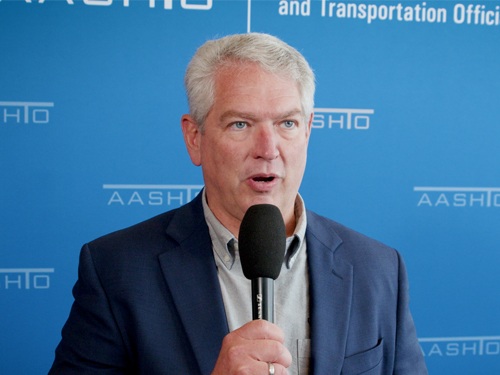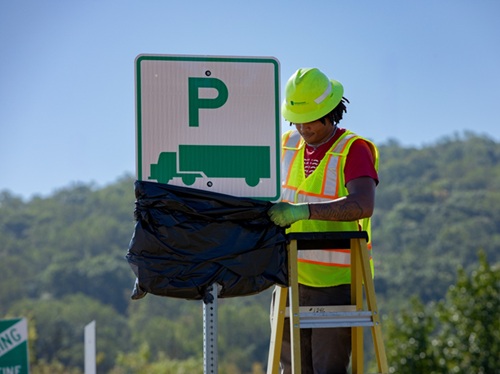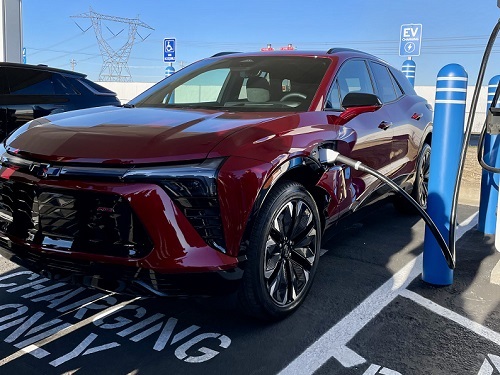The Federal Highway Administration issued $635 million in grants this week to 49 projects that support the ongoing effort to build out a national electric vehicle or EV charging and alternative fueling network.
[Above photo by FHWA]
That grant funding flows from the $2.5-billion Charging and Fueling Infrastructure discretionary grant program and a 10 percent set-aside from the National Electric Vehicle Infrastructure or NEVI Formula Program.
The agency noted in a statement that $368 million of those grant funds will be allocated for 42 “community” projects that expand EV charging infrastructure in their respective locations, while $268 million will go towards seven “corridor” fast-charging projects that support a national charging and alternative-fueling network along designated Alternative Fuel Corridors.
Those grants – which support both electric charging and hydrogen refueling infrastructure – also dovetail with the U.S. Department of Transportation’s National Zero-Emission Freight Corridor Strategy that seeks to reduce freight-related carbon emissions.
Several state department of transportation projects received funding from this latest round of grant awards:
- The Maryland Department of Transportation – in partnership with the Pennsylvania Department of Transportation, the New Jersey Department of Environmental Protection, and the West Virginia Department of Transportation – will receive $18.6 million to deploy alternative fueling infrastructure along the I-81 and I-78 corridors across Maryland, Pennsylvania, New Jersey, and West Virginia. The project includes a plan to analyze medium and heavy-duty vehicle charging/fueling deployment, as well as the installation of six fast charging stations in locations that will serve local fleet needs and build out connections to a regional network of freight truck charging infrastructure.
- The Massachusetts Department of Transportation will receive $14.4 million to install 472 EV charging ports, providing accessible charging for multi-modal transit trips and prioritizing disadvantaged communities near dense multi-family housing areas. The project addresses the lack of charging options for residents in multi-family dwellings, and includes education, workforce training, and community outreach.
- The New Hampshire Department of Transportation will receive $15 million for a project to enhance public EV charging infrastructure across the state. The project will cover both urban and rural areas, aiming to improve access to EV charging across nine regions in the state. In total, the project will install 199 EV charging ports.
 Nation
Nation
WVDOT Profiled in Latest State DOT 2-Minute Update
October 10, 2025 Nation
Nation

